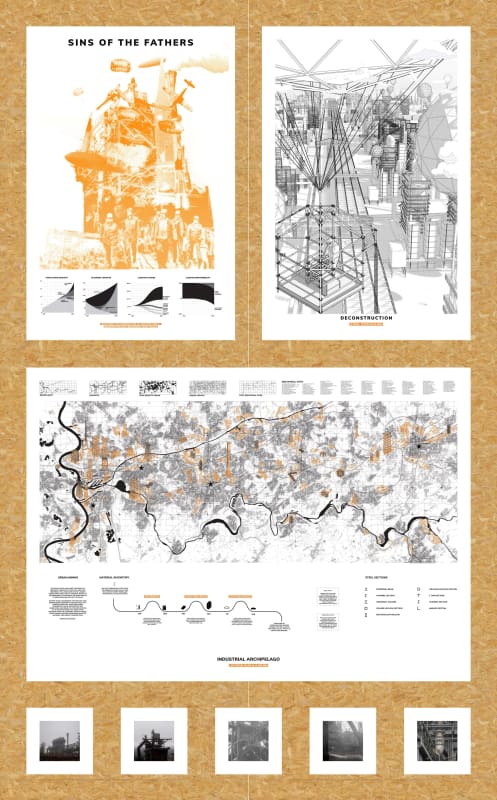Economic growth in secular society has been framed as the universal path to salvation and the primary means of alleviating suffering. But what happens when our relentless pursuit of growth becomes the very force driving us toward climate catastrophe?
With an understanding of degrowth economics and the impact of western material and energy consumption on climate breakdown, this work presents a “reductio ad absurdum” exploration of an alternative future living condition—one that rejects architecture’s complicity in environmental destruction through the radical reuse and re-fabrication of salvaged materials into informal dwellings.
Drawing on architecture’s historical role in protest and revolution, the work envisions the establishment of an autonomous settlement within the post-industrial landscape of Germany’s Ruhr Valley. Through the novel deconstruction of industrial artefacts and the inventive reuse of construction materials, it questions how a fundamental reappraisal of material and method could inform an architectural approach removed from carbon-intensive production and excessive consumption.
This work marks the conclusion of the author’s formal education and expresses the conflict and guilt that come with the realisation that: ‘As I enter my professional life, I am certain that, despite any intentions, my work will, at best, be an act of environmental amelioration.’

